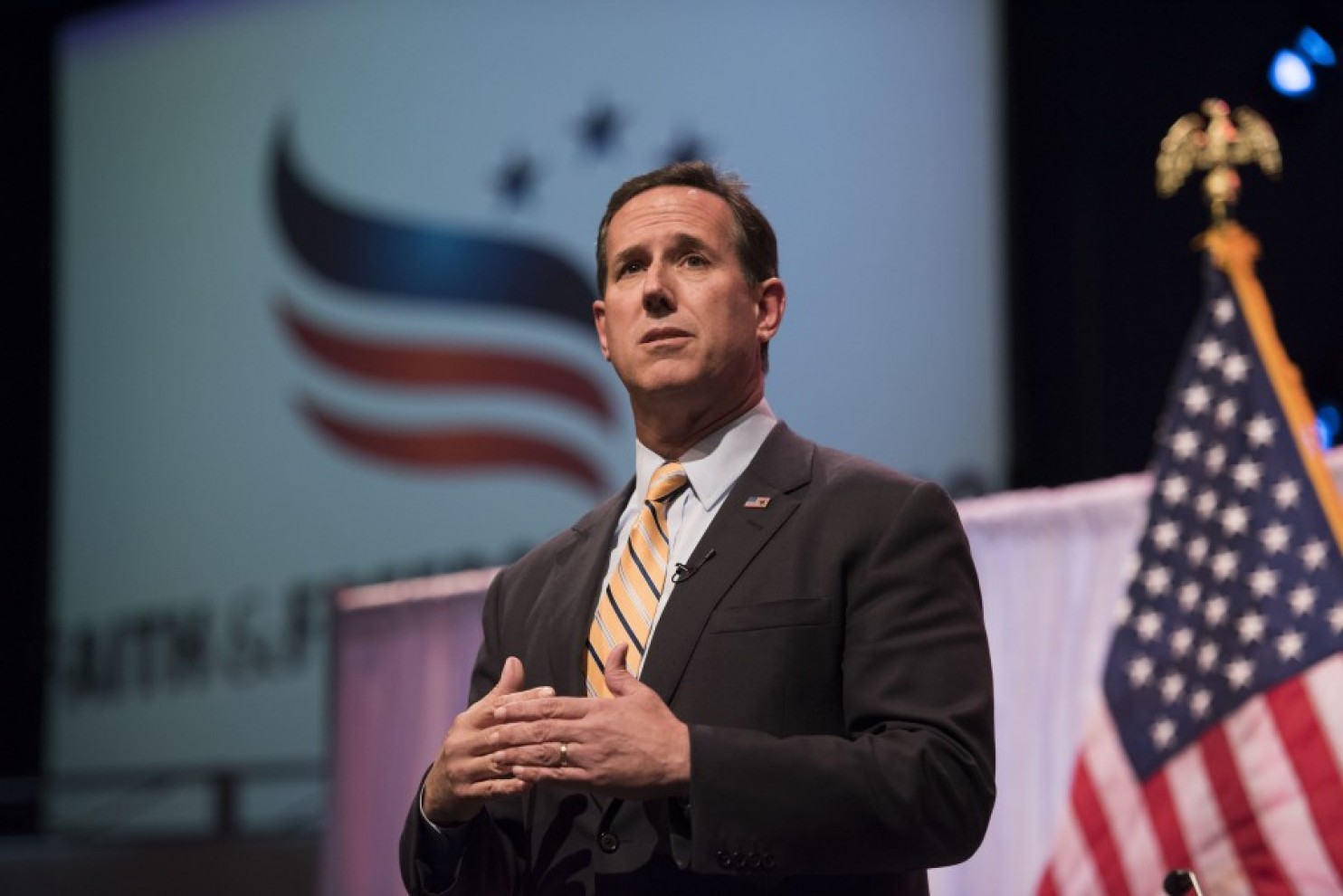
Republican presidential candidate Rick Santorum, who in 2012 pulled off a surprise second-place finish against eventual GOP nominee Mitt Romney, entered the 2016 campaign in May facing long odds.
If possible, the odds seem even longer today.
In the nearly two months since he announced his second White House run, Santorum has struggled to drum up support among Republican primary voters, averaging between 1 and 3 percent in a string of national polls.
“There are a lot of new models in the showroom, and as I've said publicly, there are a lot of good people," Santorum told reporters during a Christian Science Monitor breakfast Monday. “In spite of all the new models, I think this model is a pretty good, reliable model that people are going to come back to and say, 'You know what, all that glitters is not gold.'"
The two-time presidential candidate is tenuously straddling the necessary national polling requirement put forward by Fox News, which is hosting the debate in Cleveland, that stipulates only the top 10 candidates will be on stage. In poll after poll, Santorum is doing only marginally better than little-known challengers in the back of the pack like former tech executive Carly Fiorina and Louisiana Gov. Bobby Jindal.
But Santorum, looking back at his unlikely string of wins in 2012, insists that missing the first debate won't be a fatal blow to his candidacy.
“You know what, here’s what I’ve found. Look at every election cycle: People are up, people are down. That debate…could prove to be a wonderful opportunity for some and as we saw in the past it could be a disaster for others,” Santorum said. “[T]here were debates I wasn’t in last time and it had absolutely no impact on the campaign.”
Still, the former Pennsylvania senator called the poll-based debate qualification system a “miscarriage” that takes the influence away from actual voters. "Given that benchmark," he told reporters, "I wouldn't have been included [in 2012] if they were going to eliminate two-thirds of the people ... And yet I was on my way to winning the caucuses."
Santorum repeatedly pointed to that 2012 win in Iowa -- a contest in which he was considered the underdog -- to dismiss his low poll numbers in the crowded field of Republican rivals.
"We haven't really changed who I am as a candidate and what I believe in. I don't think Iowa has changed. In the end, Iowa is going to cut this field down dramatically much more than a debate -- much more than whether you attend the debate or not,” he said. “I’d rather not be their favorite now. I’d rather be their favorite when it matters.”
Santorum said that he will be campaigning "19 of the next 33 days" in the Hawkeye State in addition to spending more time making TV and radio appearances. He reminded reporters that he was at "1 or 2 percent" before the Iowa caucuses and that "a lot of the support we got came late."
But betting on a strong showing in Iowa might be a risky proposition. A recent Quinnipiac survey of Iowa voters placed him near the end of the crowded pack of GOP hopefuls, tying with former Texas governor Rick Perry for 8th place.
“I don’t really pay a whole lot of attention to things that go on this far ahead of a national vote," said Santorum.
Already, Santorum's core base of supporters -- social conservatives with a populist bent -- are being courted away by high-profile rivals like Sen. Ted Cruz and former Arkansas governor Mike Huckabee.
When asked about his fundraising totals Monday, Santorum said his campaign would release those numbers "at the appropriate time.
- Publish my comments...
- 0 Comments
